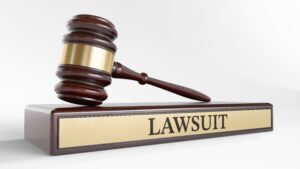Last Updated on March 6, 2025 by The Young Firm
Congress originally designed the Limitation of Liability Act of 1851 to protect shipowners from financial ruin. Today, shipowners often use it as a defensive strategy to reduce potential payouts in injury cases.
Knowing how the act works and what it can mean for your claim can help you prepare for a fair fight.
A maritime accident injury lawyer can handle the legal process. Let’s look at some of the details of this law, its limitations, and how it might impact your case.
The Limitation of Liability Act – The Basics
The Limitation of Liability Act essentially allows vessel owners to limit their liability to the value of the vessel and its cargo following an accident. This means that if you’re injured, the shipowner may attempt to argue that their liability shouldn’t exceed the vessel’s worth at the time of the accident.
This law applies regardless of the severity of your injuries or the extent of your losses, so it can have serious implications for anyone pursuing compensation in maritime injury cases.
The act operates under a few key principles:
- The owner’s fault must be absent: To invoke the act successfully, a vessel owner must prove they did not know about the conditions that caused the injury. If the incident happened due to unseaworthiness, defective equipment, or hazardous conditions that the owner knew about, the act may not protect them.
- Limited liability fund: The act caps the owner’s total liability at the vessel’s post-accident value. Depending on the situation, this can range from significant to virtually nothing.
- Separate legal proceedings: If the owner invokes the act, it often leads to a separate limitation proceeding in federal court. In this proceeding, they attempt to secure the limitation of liability by proving their lack of fault.
Why Did Congress Pass the Limitation of Liability Act?
The Limitation of Liability Act dates back to the 19th century. Shipowners faced enormous risks each time their vessels set sail, from unpredictable weather to piracy. The act encourages investments in shipping by preventing total financial ruin after accidents.
While this approach made sense when ocean travel was uncertain, modern maritime law and the demands of maritime workers have evolved.
Today, the act can be invoked in various injury cases, from catastrophic injuries to seemingly minor onboard incidents. Unfortunately, the law’s historical purpose doesn’t always match modern needs. Instead, shipowners just use it to limit compensation, making it difficult for injured seamen to get the resources they need for recovery.
How Does the Limitation of Liability Act Work in Injury Cases?
When a maritime worker or passenger suffers an injury, the vessel owner might file a limitation of liability action to restrict their financial exposure. This might mean your claim gets caught in a separate legal proceeding solely to determine if the owner can limit their liability. This introduces added complexities and can slow down your path to compensation.
Here’s what typically happens:
- The vessel owner Initiates the limitation proceeding: After an incident, the owner can file a petition in federal court seeking limitation. They’ll argue they did not know about the conditions that caused the accident and thus should only bear liability for the vessel’s value.
- The injured parties must respond: As an injured party, you must counter the limitation action. This usually involves presenting evidence demonstrating the owner’s knowledge of hazardous conditions that led to your injury.
- The court examines the owner’s knowledge and fault: To succeed, the owner must convince the court they didn’t know about the negligence or hazardous conditions onboard. If they fail, the court may deny the limitation, allowing your claim to proceed without limits on potential compensation.
- A separate fund is established: If the court grants the limitation, a fund is created based on the vessel’s current value. This can discourage you if the vessel is damaged or destroyed, as the fund can contain minimal capital. You’ll then need to argue for a share of this limited fund, which may fall short of covering your losses.
Can You Challenge the Limitation of Liability?
Yes, you can challenge the Limitation of Liability Act. Doing so often centers on proving the vessel owner knew – or should have known – about the dangerous conditions. If they knew of any issues that might have led to your injury, they cannot meet the requirements for limitation.
Successfully contesting the act involves demonstrating evidence highlighting the owner’s connection to the circumstances leading to the accident.
Key evidence that might help challenge the limitation includes:
- Maintenance records: Documents showing the vessel was inadequately maintained can reveal the owner’s negligence in creating a safe environment.
- Crew testimonies: Witnesses onboard can provide firsthand accounts of the vessel’s conditions and any issues that someone reported but ignored.
- Inspection records: Any inspection failures of the vessel can challenge the owner’s claim of unawareness.
- Incident reports: Past incidents on the vessel may suggest a pattern of negligence or overlooked recurring issues.
- Emails or memos: Written correspondence showing that the owner or management knew of problems can help.
What Happens to Your Compensation if the Limitation is Upheld?
If the court upholds the limitation of liability, the fund created will define the maximum compensation amount available. This amount will depend on the vessel’s post-incident value and cargo.
In severe cases where the vessel is extensively damaged or lost, this fund might not cover medical bills, lost earnings, and other damages.
Imagine you suffered severe injuries requiring months or years of medical treatment. If the court upholds the limitation and the vessel’s value is low, your compensation may not cover even a fraction of your expenses. That’s why you need a lawyer to counter the limitation and pursue a full recovery.
How the Limitation of Liability Act Affects Different Maritime Workers
The Limitation of Liability Act can affect various maritime workers differently, depending on their roles and the types of vessels involved.
Here’s a look at how it affects some common roles:
- Seamen on commercial vessels: Commercial vessels often have substantial value due to their cargo, which can increase the potential liability limit. However, smaller, privately owned vessels may provide less security.
- Fishermen: Fishing boats tend to cost less than larger commercial ships, which may mean the limitation fund won’t cover injuries sustained in a fishing accident.
- Crew on passenger vessels: If you’re on a passenger vessel, the company operating it may have a vested interest in limiting its exposure, particularly in cases of widespread incidents or disasters.
- Contractors and subcontractors: If you work on a vessel, you may face additional hurdles since liability may shift between multiple parties, adding layers to the limitation proceeding.
How a Maritime Accident Injury Lawyer Can Protect Your Rights
When you’re in a maritime accident, especially one where the Limitation of Liability Act might come into play, hire a maritime accident injury lawyer.
Again, vessel owners often invoke this act to limit their liability to the vessel’s value, which can severely restrict the compensation you may receive. However, with the right legal approach, you can challenge this limitation and pursue the full amount you deserve.
Here’s how a maritime accident injury lawyer can make a difference in your case.
Gathering Evidence
One of the first steps your attorney will take is to gather evidence demonstrating the vessel owner’s knowledge of unsafe conditions. Again, to limit their liability successfully, the owner must prove they didn’t know about any hazards that contributed to your accident.
Your attorney will focus on securing maintenance records, safety inspection data, and any internal reports that indicate whether the vessel was properly maintained.
Evidence of prior incidents, unaddressed repairs, or ignored safety recommendations can help show that the owner should have known about the risks onboard. This documentation can help you challenge the owner’s claim that they did not know about unsafe conditions. The more thorough the evidence, the stronger your case.
Presenting Witness Testimonies
Witness testimonies are another key element in contesting a limitation of liability claim. Your attorney can work with crew members and other personnel to provide firsthand accounts of unsafe conditions onboard.
Such testimony can reveal a history of negligence, inadequate maintenance, or a lack of safety protocols, all of which can help prove the owner’s awareness.
Crew members who observed unsafe practices or were aware of past issues can offer valuable insight into the conditions on the vessel. Their statements can paint a picture of the working environment and demonstrate that any negligence leading to your injury was not unknown to the owner.
By presenting these witnesses, your attorney can build a case that counters the limitation and supports your right to full compensation.
Handling the Legal Complexities
Limitation of liability proceedings are highly specialized, with unique legal procedures and requirements. A seasoned maritime accident injury lawyer will know how to navigate this complex process, ensuring technicalities or procedural hurdles don’t trap you. These proceedings often occur in federal court, adding another layer of complexity.
Your attorney will handle all aspects of the legal process, from filing the necessary documents to representing you in court. They’ll follow every step correctly, keeping your claim on track and avoiding delays.
An experienced lawyer knows how to present your case in a way that meets the court’s strict requirements, maximizing your chances of overcoming the limitation and receiving the compensation you deserve.
Evaluating All Available Claims
While the Limitation of Liability Act may limit certain aspects of your claim, other legal options might be available. A maritime accident injury lawyer will carefully evaluate all potential claims that bypass the limitation, allowing you to seek additional compensation.
For example, if the accident involved negligence by the vessel owner, your lawyer might explore claims under the Jones Act or other maritime laws that protect seamen and maritime workers.
These additional claims can offer a pathway to recovery outside the confines of the limitation fund, increasing your chances of obtaining fair compensation for your injuries.
Protecting Your Right to Full Compensation
A maritime accident injury lawyer does more than simply navigate the limitation of liability process; they advocate for your right to a fair recovery. Their goal is to challenge any attempt by the vessel owner to minimize your compensation and to hold them accountable for the conditions that led to your accident.
Your attorney will protect you by gathering evidence, presenting witness testimonies, managing the legal complexity, and evaluating alternative claims.
With a maritime accident injury lawyer, you’ll have the resources and support necessary to contest the limitation and seek the compensation you deserve.
Don’t Let the Limitation of Liability Act Stand in Your Way

The Limitation of Liability Act has endured for over a century, but it doesn’t always serve the interests of injured maritime workers. When a vessel owner invokes this law, it’s often a calculated move to reduce the payout, especially in severe injury cases where damages are high.
Recognizing how parties use the law to restrict your recovery can make a difference in your approach.
By acting decisively, gathering evidence, and working with a qualified attorney, you stand a better chance of overcoming the limitation and securing the resources you need for recovery. It’s about holding vessel owners accountable, ensuring they take responsibility for the safety of their crew, and fighting for the compensation you deserve.
The Limitation of Liability Act doesn’t have to prevent you from obtaining fair compensation. Contacting an experienced maritime accident injury lawyer gives you the best chance of achieving justice in a difficult time and complicated legal scenario.



